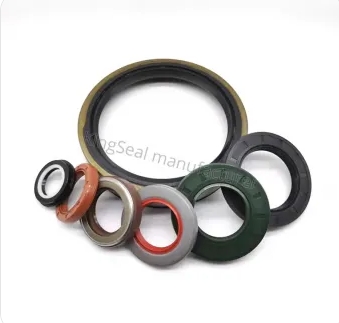Oil Seals - Everything You Need to Know
Oil seals, also known as grease seals or rotary shaft seals, may not be the most glamorous components in machinery, but they play a crucial role in preventing oil leakage and maintaining the integrity of various industrial applications. In this article, we'll explore oil seals comprehensively, diving into their functions, types, common uses, and essential maintenance practices to keep your machinery running smoothly.
Understanding the Basics
What Are Oil Seals?
Oil seals are mechanical gaskets designed to prevent the leakage of lubricants, oils, or other fluids in machinery. They create a barrier between moving or stationary components, ensuring that vital oils stay where they belong.
Why Are They Important?
Oil seals are essential to machinery longevity and performance. They protect bearings, gears, and other critical components from damage due to oil leakage, moisture, or contaminants.
Types of Oil Seals
Lip Seals
Lip seals are the most common type of oil seal and feature a flexible lip that makes direct contact with the rotating shaft. They provide effective sealing and are widely used in various applications.
Mechanical Face Seals
Mechanical face seals, also known as floating seals, consist of two metal rings that create a labyrinth-like seal. They are ideal for heavy-duty applications, such as construction and mining equipment.
PTFE Seals
PTFE (polytetrafluoroethylene) seals are excellent in high-temperature and chemically aggressive environments. They offer low friction and superior sealing properties.
Applications of Oil Seals
Automotive Industry
In vehicles, oil seals are used in engines, transmissions, and axles to prevent lubricant leakage and contamination, ensuring optimal performance and longevity.
Industrial Machinery
Oil seals are found in various industrial equipment, including pumps, compressors, and conveyors, helping to maintain operational efficiency and reduce downtime.
Agricultural Machinery
In farming equipment like tractors and harvesters, oil seals protect against soil and debris infiltration, safeguarding the machinery's inner workings.
Maintenance and Replacement
Regular Inspections
To extend the life of your machinery, conduct regular inspections of oil seals for signs of wear, leakage, or damage. Address any issues promptly.
Proper Installation
When replacing oil seals, ensure they are correctly installed to prevent any potential leakage. Use the appropriate tools and follow manufacturer guidelines.
Choosing the Right Seal
Selecting the right type of oil seal for your application is crucial. Consider factors such as temperature, pressure, and the type of fluid the seal will be exposed to.
Common Issues and Troubleshooting
Leakage
If you notice oil leakage around the shaft, it's a clear sign that the seal has failed. Prompt replacement is necessary to prevent further damage.
Excessive Friction
Increased friction in rotating parts may indicate a worn oil seal. Replacing it can restore smooth operation and reduce energy consumption.
Contamination
Dust, dirt, and debris can damage oil seals. Regularly clean and maintain the seals to prevent contaminants from infiltrating sensitive components.
Conclusion
Oil seals may not be the stars of the show in your machinery, but they are unsung heroes. By understanding their purpose, types, applications, and proper maintenance, you can ensure that your equipment operates smoothly, efficiently, and with minimal downtime. Oil seals are vital for preserving the integrity and functionality of various industrial systems, from vehicles to heavy machinery, making them a crucial component to be mindful of. So, the next time you're working on or with machinery, remember the humble oil seal and its unsung role in keeping things running.
Tianjin King Seal Technology Co., Ltd. has been focusing on the rubber seal industry. Our products are widely used in machinery, automobiles, mining, engineering construction, food, game equipment and other industries.
If you have any questions, you can view the issues here.
139
0
0



Comments
All Comments (0)